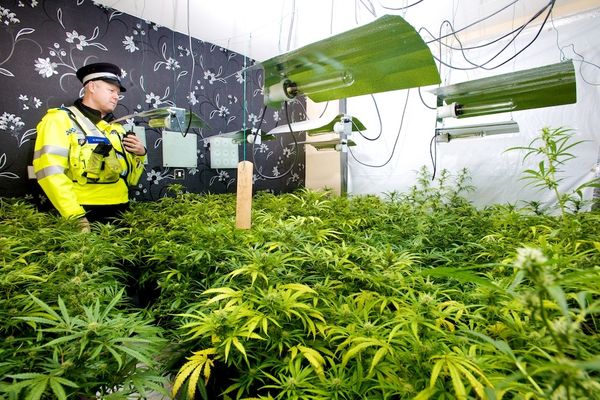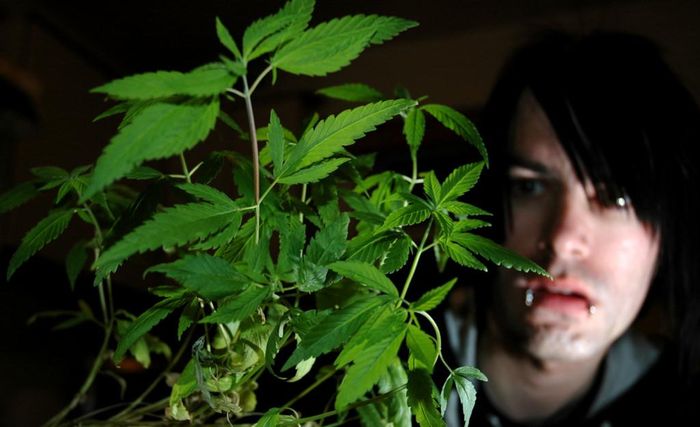- The United Kingdom is going through a time of political uncertainty, and cannabis is also affected.
- While the University of Oxford has announced a multi-million-pound programme for research into cannabinoids, the British people are wondering how they will be able to travel with cannabis if they leave the Schengen Area, and whether their companies can compete in the European market on the same footing as before the Brexit, the country's departure from the European Union.
- The recent actions of a mother in Northern Ireland, meanwhile, have provided hope for legalisation in what has been one of Europe's most restrictive states.

The United Kingdom is in the spotlight, scrutinised by many as the process to leave the European Union has become official. The current political situation has also made waves in the cannabis world, as the new situation affects how the plant will be approached in the country. Brexit or no Brexit, many British citizens still want to see a change in the legal status of cannabis. With some of the most restrictive policies in Europe on this issue, citizens are organising to bring about more favourable legislation. In the meantime, the prestigious Oxford University has launched a research programme into medical cannabis. And this is not just any programme either, as it is backed by some 10 million pounds (11.65 million euros) in private funding, money that will be channelled through Oxford Cannabinoid Technologies, a new biopharmaceutical company that wishes to study and develop cannabinoid-based components and therapies.
Thus, Oxford wishes to move forward in the search for therapies against diseases that other institutions have been researching for years. Specifically, they will focus on cancer and other diseases that cause inflammation or pain. Therefore, they want to conduct research on how molecular and cellular mechanisms behave when exposed to cannabinoids, in order to find new alternatives for treatments.
"Research into cannabinoids has begun to produce exciting biological discoveries. This research programme is an opportunity, and it is here in time to increase our understanding of the role of cannabinoids in health and disease," explained Ahmed Ahmed, a Professor of Gynaecological Oncology at Oxford. The project benefits from the fact that cannabidiol has been classified as a medicine since late last year, when Britain's MHRA (Medicines and Healthcare products Regulatory Agency) took charge of its commercialisation. This move will give researchers safer access to the substance, and will mean that consumers have more and better information on its use.

The project is so important that even celebrities like actor Patrick Stewart have voiced their support. Stewart, known for his role as Captain Picard in the series Star Trek: The Next Generation, and as Professor Xavier in X-Men, uses medically recommended cannabis to treat osteoarthritis (a disease that affects cartilage) in his hands. "I think that this research programme could yield benefits for people like me," said Stewart.
A call for legalisation
Oxford's initiative comes after a survey concluded that 58% of MPs were in favour of the legalisation of medical cannabis in the country. Supporters include major figures, such as former Deputy Prime Minister Nick Clegg. By party, 60% of Labour MPs and 55% of Conservatives support it, while the percentage rose to 88% in the case of the Scottish National Party.
Neither of the two major parties officially supports it, while the Liberal Democrats and the Greens have called for legalisation. Last March, in fact, the former called for the regulation of recreational use, joining patients suffering from chronic pain and anxiety, who have been clamouring for it for a long time.
One of the reasons why it is believed that new legalisation could come soon is that British pharmaceutical authorities, as mentioned earlier, ruled a few months ago that cannabidiol is, in fact, a medicinal substance, such that drugs containing it could be classified as medications. At the same time, a conservative think tank has argued that legalisation would bring in between 750 million and 1 billion pounds per year (883-1.177 billion euros) in revenue, while more than 1,300 people would stop going to jail every year for cannabis-related offences, with the ensuing savings in judicial costs.

The Brexit is here
Meanwhile, the Brexit is already a full-fledged reality. The United Kingdom and the European Union are beginning to negotiate the terms on which the separation will take place, and how it will affect all citizens. Cannabis also has its role here.
If there are no changes introduced by these negotiations, the island will cease to be part of the Schengen zone for the free movement of goods and people. This will mark a setback for people who travelled to other countries in search of high-quality grass, especially medical. Patients would not be able to carry medications or therapeutic substances, or buy them as easily in the states in the European Union.
Within the Union, any patient who cannot obtain his medication in his country can travel to another area that does offer a solution to his problem, and then transport it to his place of residence. The Brexit means that British patients will be denied the right to turn to a State that does not penalise the use of cannabis for therapeutic purposes.
Meanwhile, those who use marijuana recreationally will also be adversely affected by the exit, as they lose the right to move to countries where consumption is more accepted than in the UK. In addition, any Briton who wishes to travel abroad, but has any sort of cannabis-related conviction, will be affected.
Finally, the cannabis companies that are emerging in the UK, and its seed banks, will also suffer from the Brexit. All of them depend directly on sales to other EU countries, which will now most likely be taxed differently, making them much less competitive.
Good news in Northern Ireland
To legalise cannabis for therapeutic purposes, in they UK can always look at what recently happened in Northern Ireland, where a mother is fighting to improve the situation regarding cannabis there, all for her son. Billy is Charlotte Caldwell's son, and he suffers from severe epilepsy. When he was four months old doctors told Charlotte that her baby was going to die, but she did not give up. He's now 11.
Finally, a doctor in Belfast has agreed to prescribe Billy medical cannabis, while a colleague from Los Angeles cares for him. This brings an era to a close in the family's history, which spurred the two to live for a time in the US so that Billy could be treated there, until a health minister agreed that the boy's treatment would be covered, provided that they found a doctor and physical therapist in the UK. So, Charlotte and Billy returned to England, but the boy got worse.
Back in Northern Ireland, their contact in Los Angeles recommended medical cannabis to calm his seizures. To raise awareness amongst the authorities, Charlotte and Billy walked from their city, Castlederg, to Belfast, a journey of over 240 km. "I was frustrated because I was not going to let Bill die," she told reporters. At the Royal Victoria Hospital in the Northern Irish capital, a doctor prescribed him the long-awaited cannabis. "He was very kind," she explains. "He cried with me, and told me that he would do everything he could to help. It was very moving."
An estimated one million British citizens consume cannabis for medical purposes. For this they have to either grow it, or risk acquiring it from a dealer. Either option can mean being pursued by law enforcement. But the new phase dawning in the country has spawned calls for more lenient legislation in every area, for which the people will be grateful.



Comments from our readers
There are no comments yet. Would you like to be the first?
Leave a comment!Did you like this post?
Your opinion about our seeds is very important to us and can help other users a lot (your email address won't be made public).